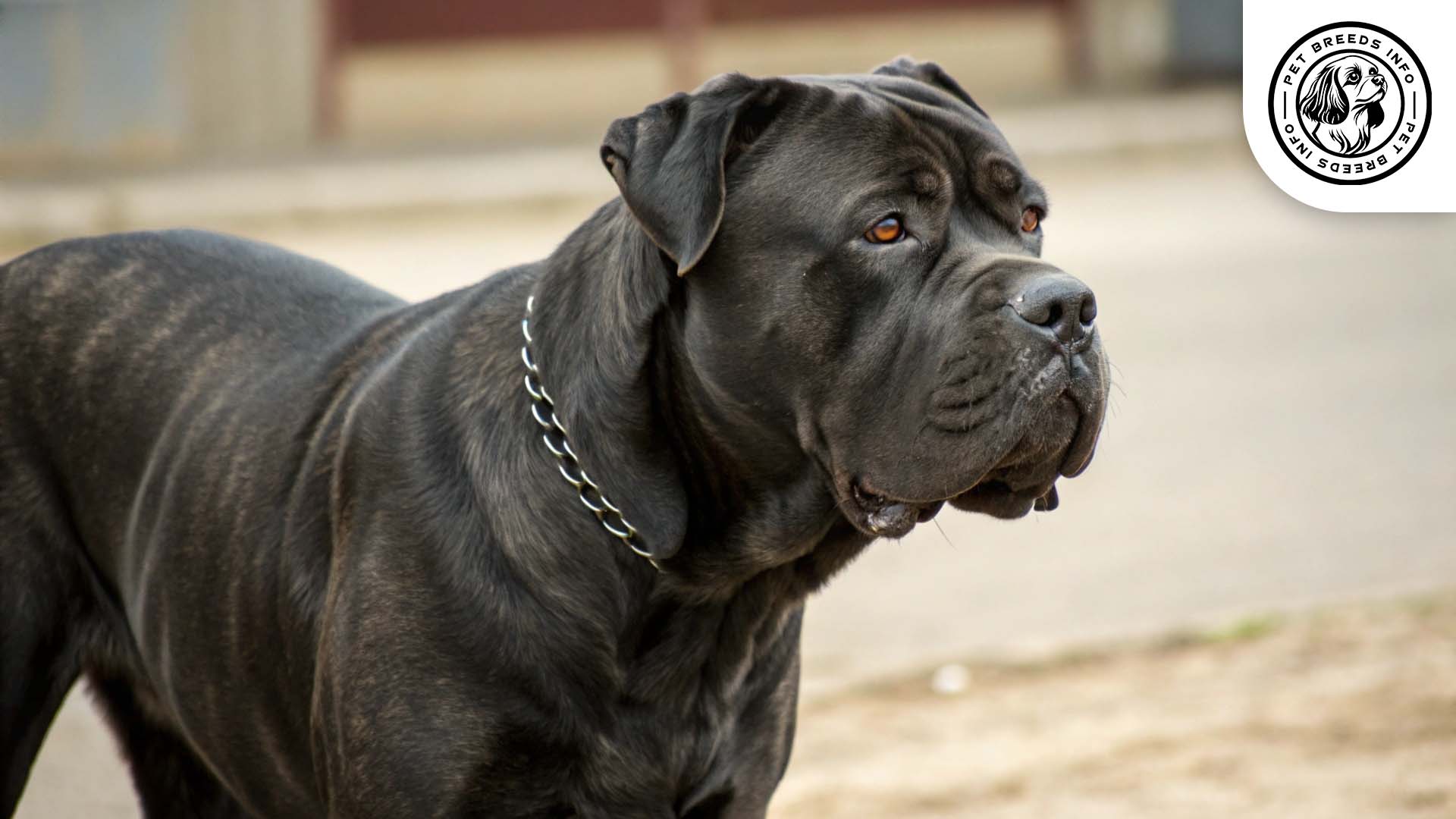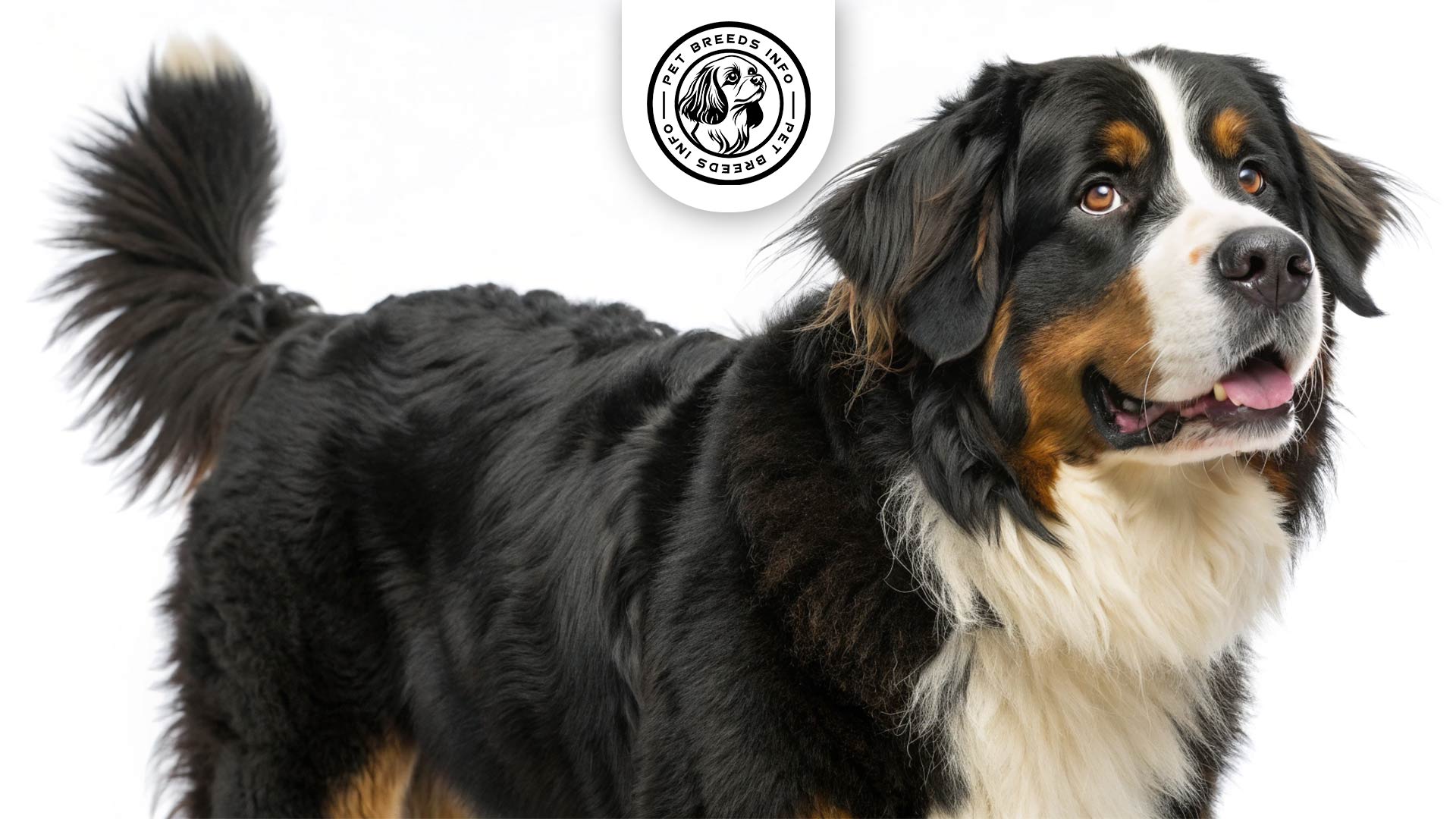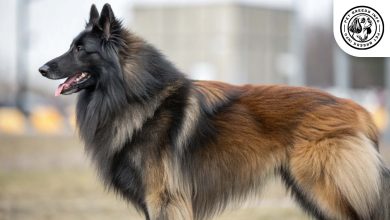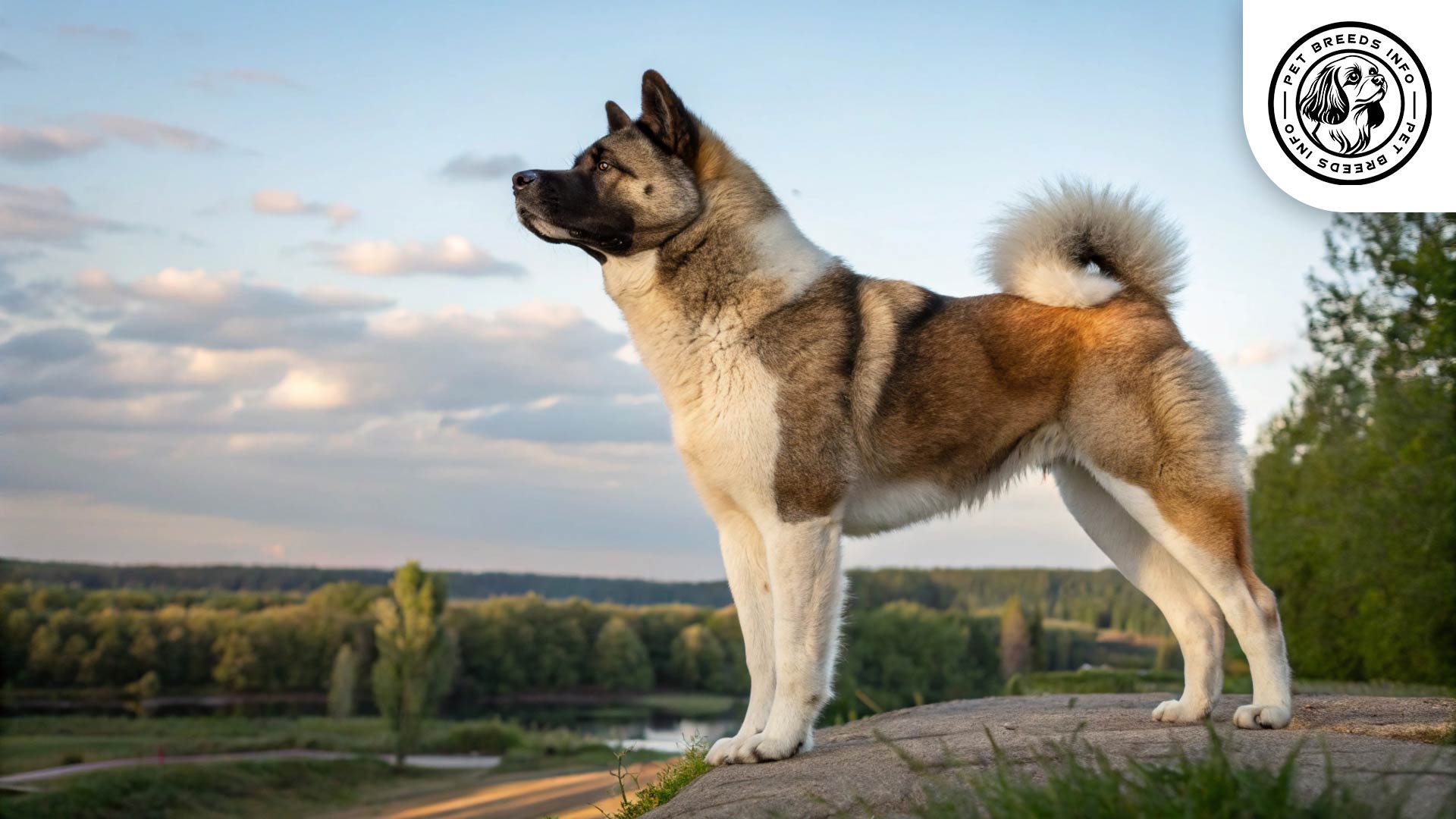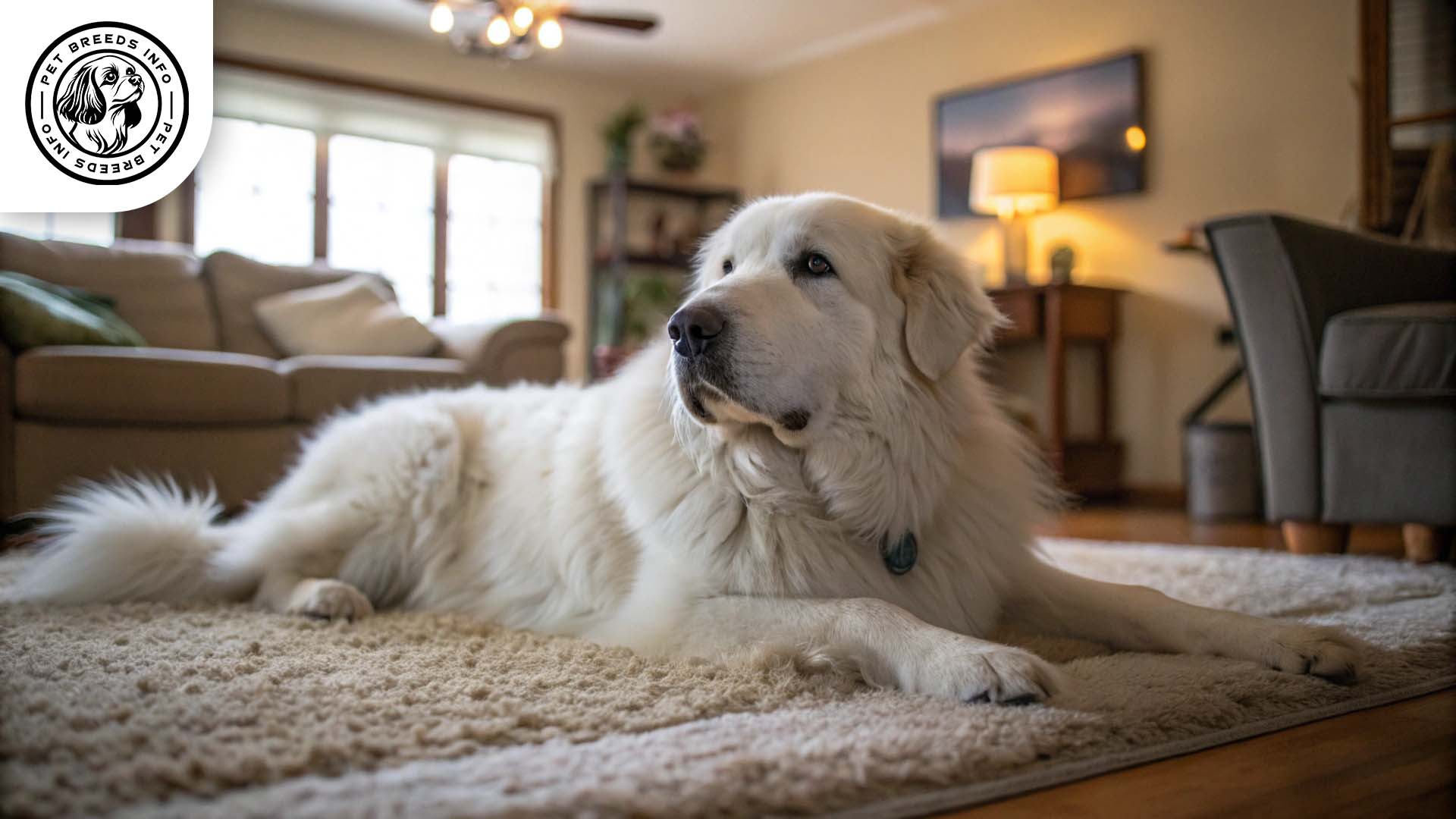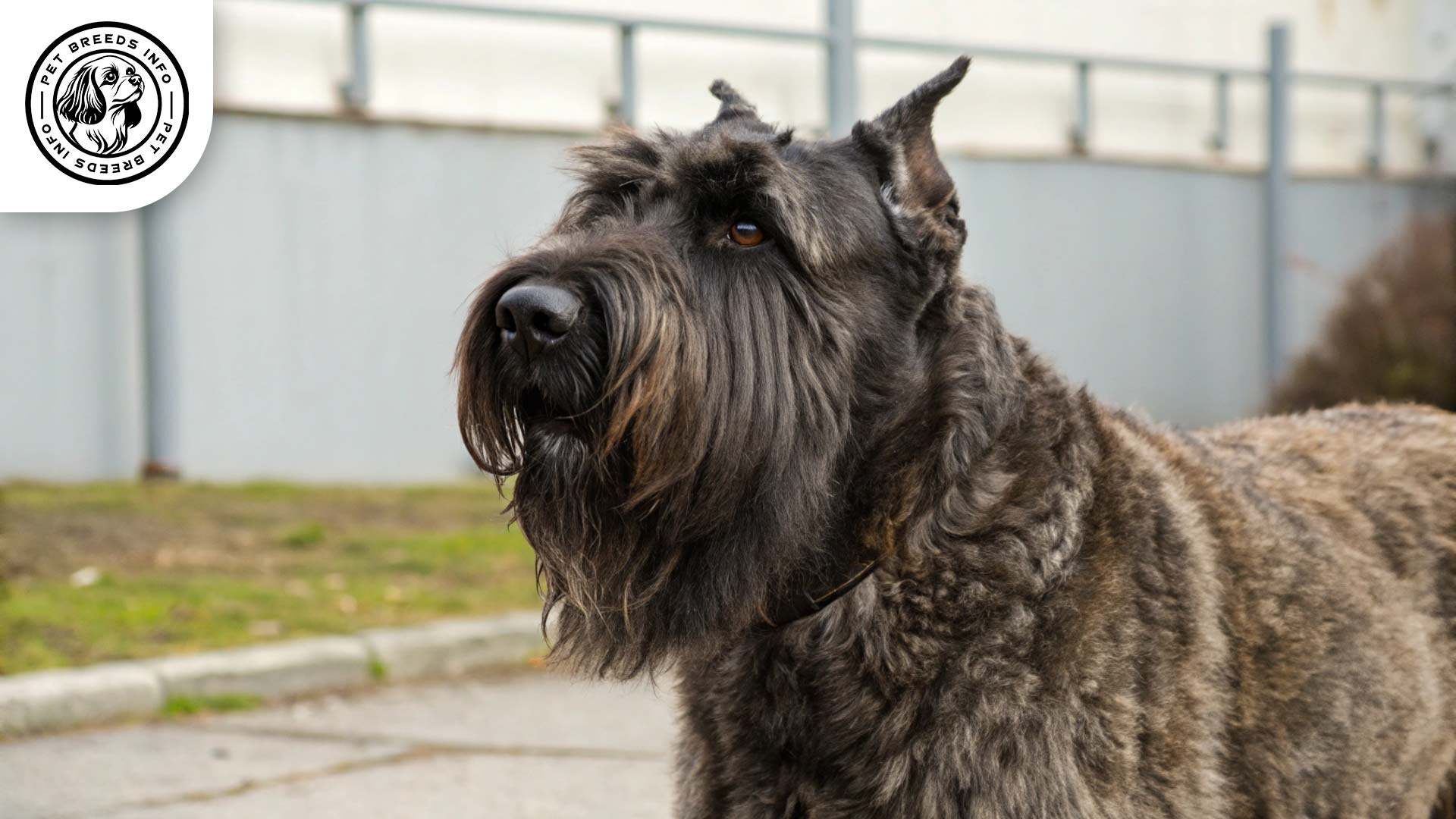Italian Mastiff Dog Breed: Size, Health, Price & Personality
General Introduction of the Breed
The Italian Mastiff, also known as the Cane Corso, is a large and powerful breed that originates from Italy. The name “Cane Corso” is derived from Latin, meaning “guardian dog” or “protector.” This breed was historically used as a guardian, war dog, and hunter of large game.
The Italian Mastiff descends from ancient Roman war dogs and has been a loyal companion for centuries. Once near extinction, the breed was revived in the mid-20th century through dedicated breeding programs in Italy.
Table of Contents
| Weight | 99-110 lbs (male), 85-99 lbs (female) |
| Lifespan | 10-12 years |
| Diet | High-protein kibble, raw, or natural |
| Care | Moderate grooming, regular exercise |
| Health | Prone to hip dysplasia, bloat, eye issues |
| Color | Black, gray, fawn, brindle |
| Nature | Loyal, protective, intelligent |
| Price | $1,500-$4,000 |
Physical Characteristics
The Italian Mastiff is a muscular and athletic dog with a strong, imposing appearance. Males typically stand between 24 to 28 inches tall and weigh between 99 to 110 pounds, while females range from 23 to 26 inches in height and weigh slightly less.
The breed’s coat is short, dense, and can come in colors such as black, gray, fawn, and brindle. The eyes are almond-shaped and typically range from dark brown to light amber. The ears are naturally floppy but are sometimes cropped for a more traditional working-dog look. The tail is usually docked but may also be left natural.
Distinctive physical traits include a broad skull, well-defined muscles, and a short, strong muzzle. Their overall appearance exudes strength and confidence.
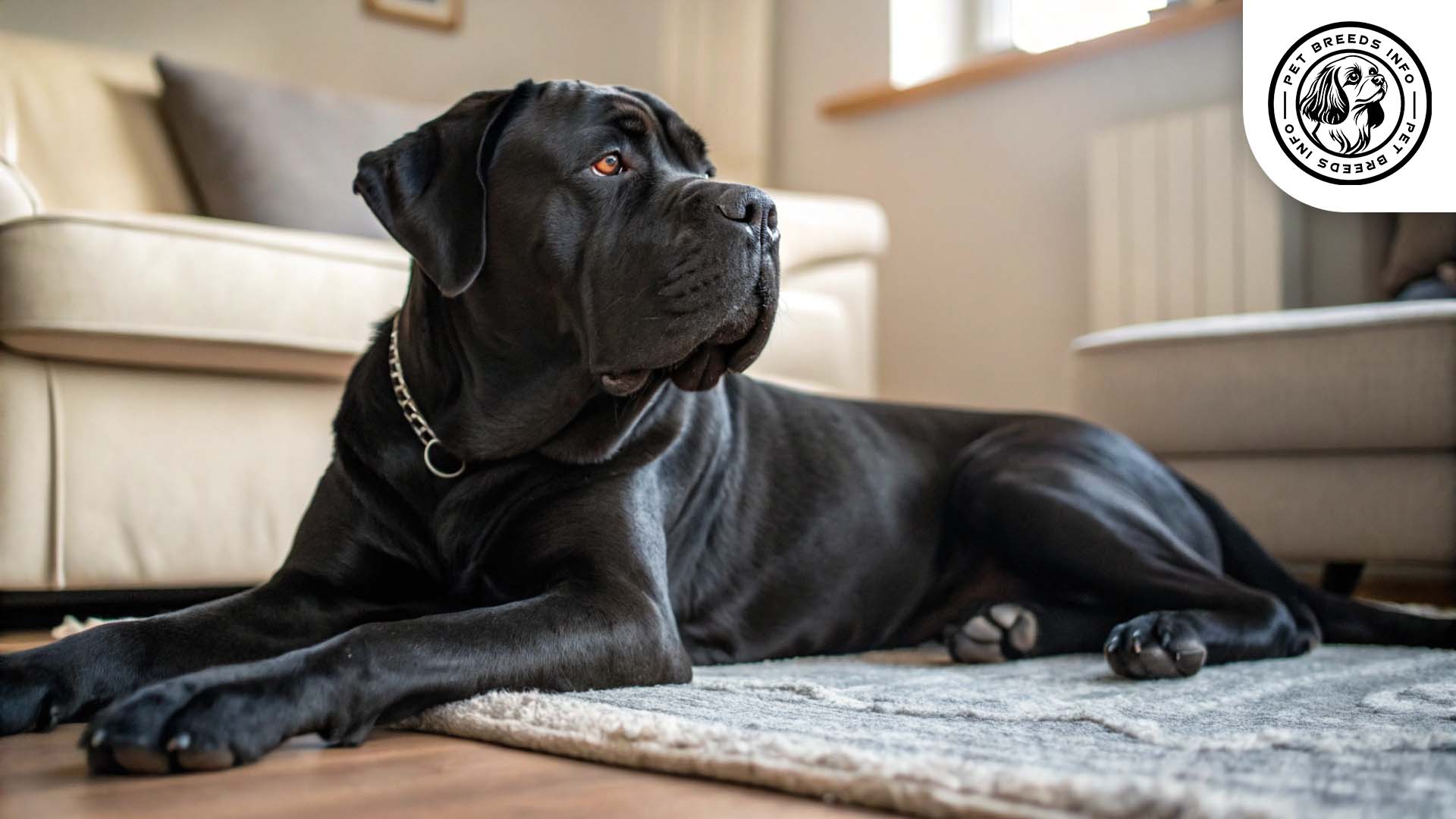
Personality and Temperament
The Italian Mastiff is highly intelligent and responds well to training, making it easy to teach complex commands. It has moderate to high energy levels and requires regular mental and physical stimulation.
This breed is highly devoted to its owner and tends to form very strong bonds. It is naturally protective and can be wary of strangers but is affectionate with its family.
Socialization is crucial, as the Italian Mastiff has strong guarding instincts. With proper training, it can coexist well with children and other pets. However, due to its dominant nature, supervision is recommended when interacting with smaller animals.
Sensitive to its surroundings, the Italian Mastiff requires a structured environment to thrive.
Read More: Yorkipoo Dog
Care and Maintenance Requirements
This breed requires daily exercise, including long walks, play sessions, and mental stimulation through training. A home with a secure, spacious yard is ideal, but with sufficient exercise, it can adapt to apartment living.
The Italian Mastiff has minimal grooming needs due to its short coat. Shedding is moderate, and weekly brushing helps to manage loose hair. Bathing should be done occasionally, while regular ear cleaning, nail trimming, and dental care are essential.
This breed is somewhat sensitive to extreme heat and should have access to shade and water in hot climates.
Diet and Nutrition
A high-protein diet consisting of quality dry kibble, raw food, or a natural diet is recommended. Avoid feeding table scraps or processed human food, as these may cause digestive issues.
Some Cane Corsos have sensitivities to grains, requiring grain-free diets. Portion control is important to prevent obesity, and meals should be divided into two daily servings for adults.
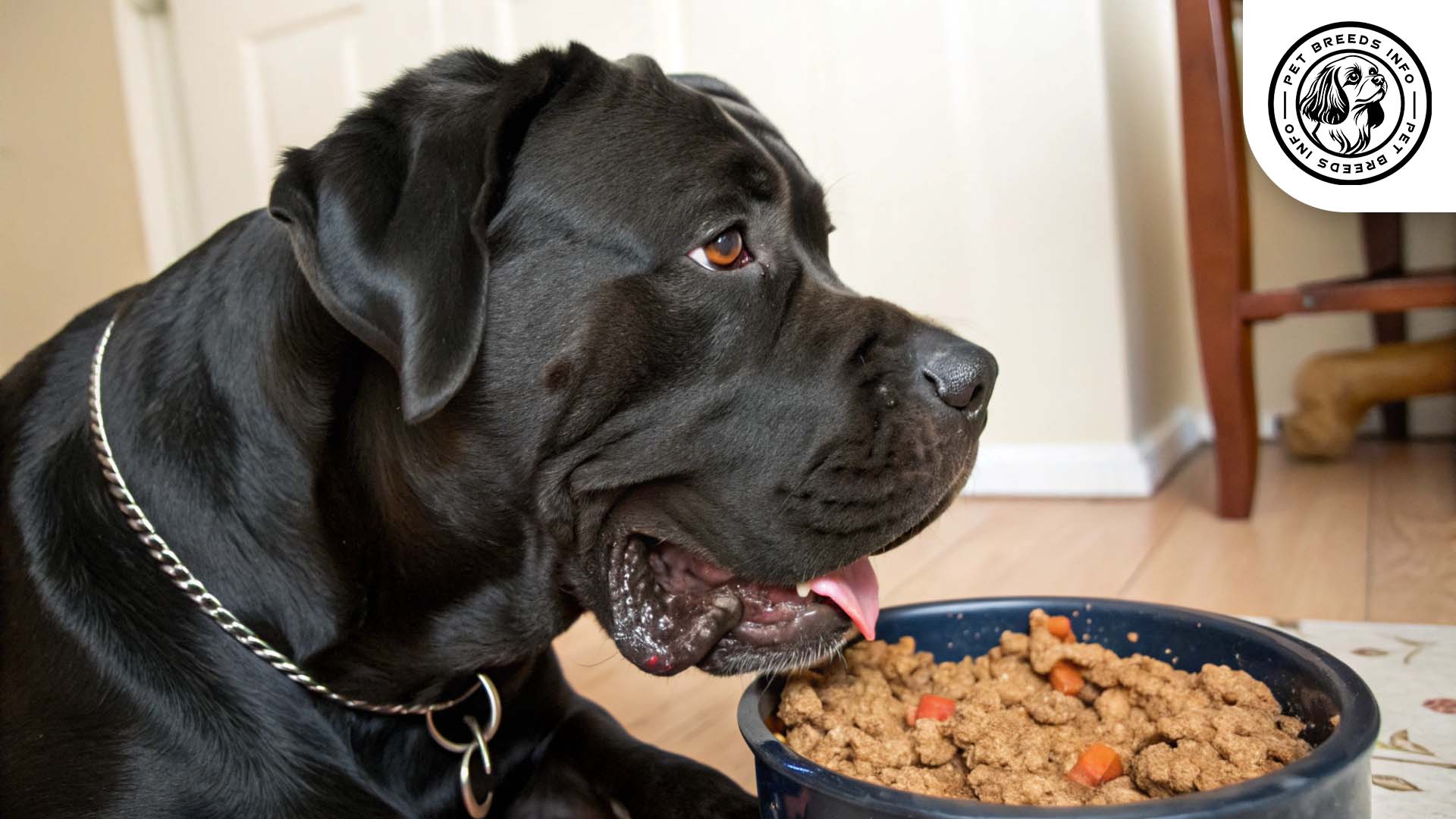
Health and Common Medical Issues
Common health conditions associated with the Italian Mastiff include hip dysplasia, elbow dysplasia, bloat, and eye disorders. Responsible breeding can reduce the likelihood of genetic issues.
The average lifespan of a Cane Corso ranges from 10 to 12 years. Routine vet checkups, vaccinations, and parasite prevention are essential for maintaining good health.
Read More: Poochon Dog
Training and Behavior Management
The Italian Mastiff is trainable but requires a firm, experienced owner. Early training and socialization are crucial to prevent dominance issues and ensure good behavior.
Positive reinforcement methods, such as rewards and praise, work best. Consistency in commands and leadership is key in achieving obedience.
Interaction with Other Animals and Humans
The Italian Mastiff is loyal and good with children when properly trained. However, interactions should always be supervised due to its size and protective nature.
With proper socialization, it can get along with other pets but may show dominance toward unfamiliar animals.
It is well-suited for individuals or families that can provide time, attention, and consistent training.
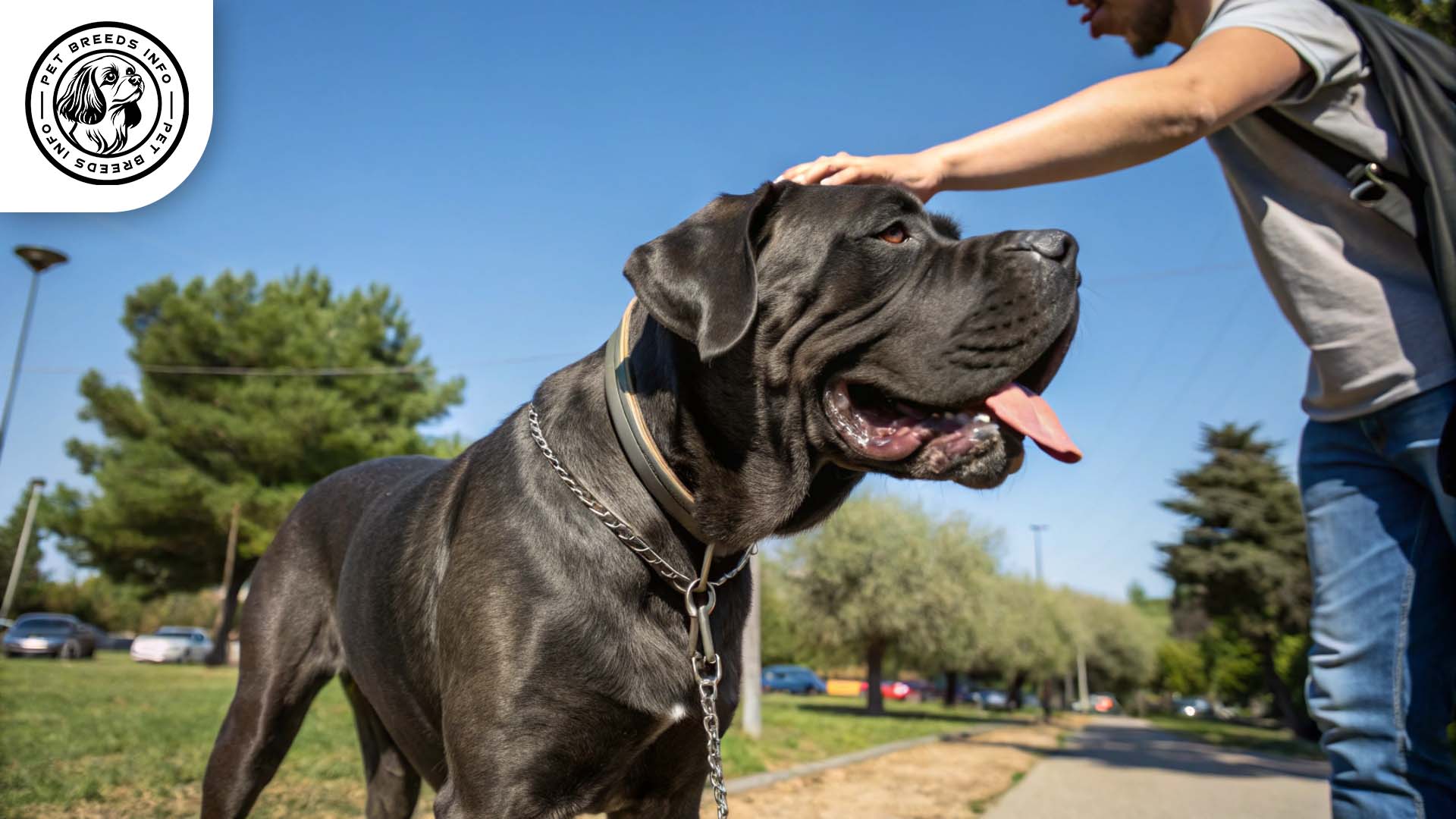
Price and Availability
The cost of a Cane Corso puppy varies based on pedigree, breeder reputation, and location, ranging from $1,500 to $4,000. Adoption is also an option through breed-specific rescues.
When acquiring a Cane Corso, it’s important to choose a reputable breeder who ensures ethical breeding practices and health screenings.
Read More: Horgi Dog
Conclusion and Final Thoughts
The Italian Mastiff is a loyal, intelligent, and protective breed suited for experienced owners who can provide firm training, socialization, and a structured environment.
It thrives in homes with space and strong leadership, making it ideal for active families or individuals looking for a devoted companion.
Potential owners should consider its exercise needs, socialization requirements, and protective instincts before choosing this breed. With proper care, the Italian Mastiff is a remarkable guardian and loving family member.
FAQ
Is the Italian Mastiff good for families?
Yes, it is loyal and protective but requires proper training and supervision with children.
How much exercise does a Cane Corso need?
It needs at least 60-90 minutes of daily exercise, including walks and playtime.
Does the Italian Mastiff get along with other pets?
With early socialization, it can coexist with other pets but may show dominance.
Is the Italian Mastiff easy to train?
Yes, but it needs a firm, experienced owner using positive reinforcement.
What are common health issues in Italian Mastiffs?
They are prone to hip dysplasia, bloat, and eye conditions, requiring regular vet checkups.
